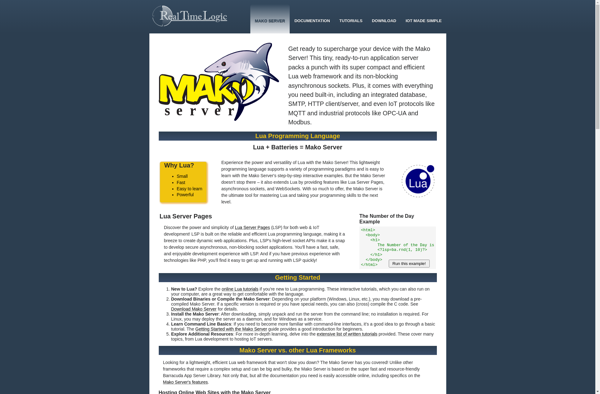Jetty
Jetty is a free, open-source web server and Java Servlet container. It is lightweight, fast, and scalable, making it well-suited for static and dynamic content. Jetty is often embedded into products but can also be deployed as a stand-alone web server.
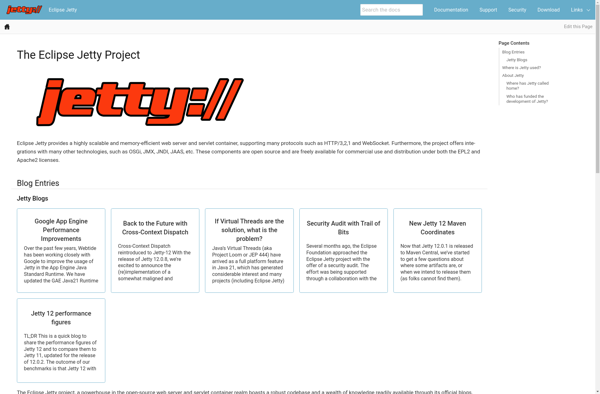
Jetty: Lightweight and Fast Web Servers
Free, open-source web server and Java Servlet container with scalability, making it suitable for static and dynamic content deployment.
What is Jetty?
Jetty is a free, open source web server and Java Servlet container developed by the Eclipse Foundation. It provides an HTTP server and Servlet container capable of serving static and dynamic content. Some key features of Jetty include:
- Lightweight and high performance - Jetty has a small memory and resource footprint, making it well-suited for embedding into products. It is designed to be scalable for high load and concurrency.
- Asynchronous support - Jetty provides asynchronous request handling through features like AsyncContext and Async Servlets.
- WebSockets - Jetty contains native support for the WebSocket protocol for two-way communication between client and server.
- SPDY Support - Jetty supports Google's SPDY protocol for faster web applications.
- Extensible via Java - You can programmatically customize and extend Jetty's functionality since it is written in Java.
- Embedded or Standalone - Jetty can run embedded into an application to provide web services within it. But it can also be deployed as a stand-alone web server.
Some common uses of Jetty include as an embedded Servlet container in products that require web application services. It is also a popular choice for powering REST and web UI aspects of servers and tools. Many well known open source software like Apache Solr, Apache Geronimo and others embed Jetty.
Jetty Features
Features
- Embedded servlet container
- Asynchronous support
- WebSocket and HTTP/2 support
- Pluggable architecture
- High performance
- Lightweight
- Scalable
Pricing
- Open Source
Pros
Fast and lightweight
Easy to embed
Extensible and pluggable
Open source with active community
Supports latest standards like HTTP/2 and WebSocket
Highly scalable and performant
Cons
Limited administration console
Not as feature rich as some alternatives
Documentation can be lacking
Not ideal for complex enterprise deployments
Official Links
Reviews & Ratings
Login to ReviewThe Best Jetty Alternatives
Top Development and Web Servers and other similar apps like Jetty
Here are some alternatives to Jetty:
Suggest an alternative ❐Pusher
Pusher is a hosted API service that provides developers with the tools to easily build realtime features into their web and mobile applications. At its core, Pusher enables applications to communicate bidirectionally and establish persistent connections through which messages can be sent and received in real time.Some of the key...
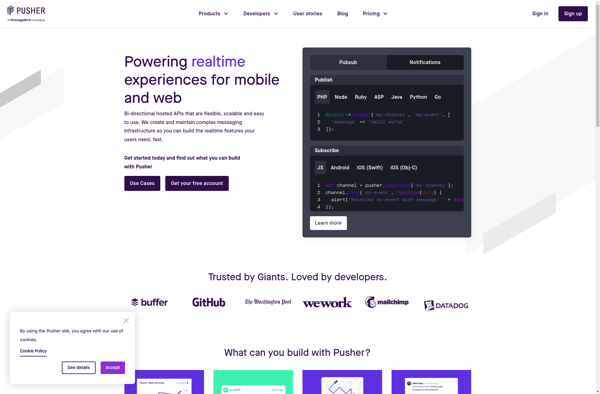
Apache Tomcat
Apache Tomcat is an open source implementation of the Java Servlet, JavaServer Pages, Java Expression Language and Java WebSocket technologies. It provides a pure Java HTTP web server environment in which Java code can run.Tomcat is developed and maintained by developers from the Apache Software Foundation and open source community....
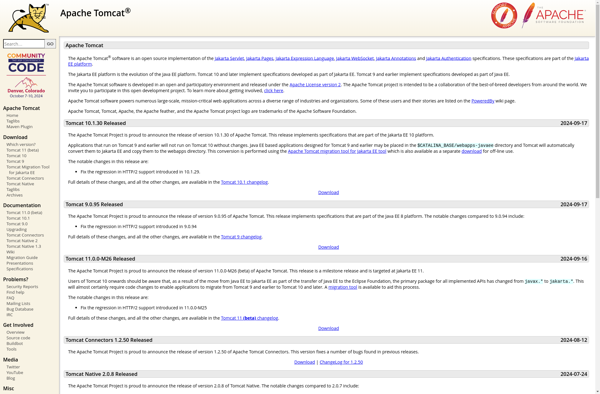
JBoss
JBoss is a widely used open source application server that implements Java Enterprise Edition (Java EE) standards. It provides a runtime platform and services for developing and deploying Java server applications, web applications, and web services.Some key features and capabilities of JBoss include:Supports Java EE web technologies like Servlets, JSPs,...
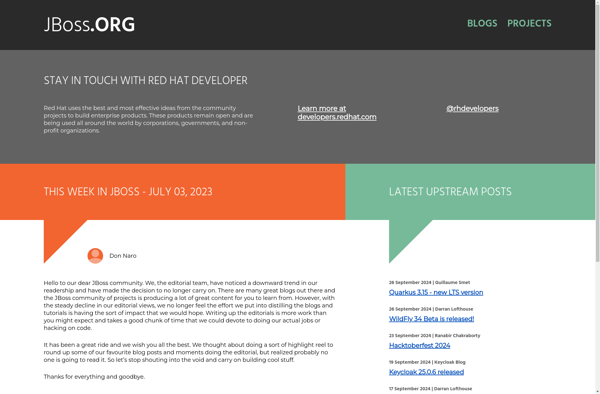
Socket.io
Socket.io is an open source JavaScript library that enables real-time, event-based communication between web clients and servers. It uses the WebSocket protocol to provide full-duplex, bidirectional communication channels over a single TCP connection. The key features of Socket.io include:Real-time messaging - Socket.io enables messaging between clients and servers with minimal...
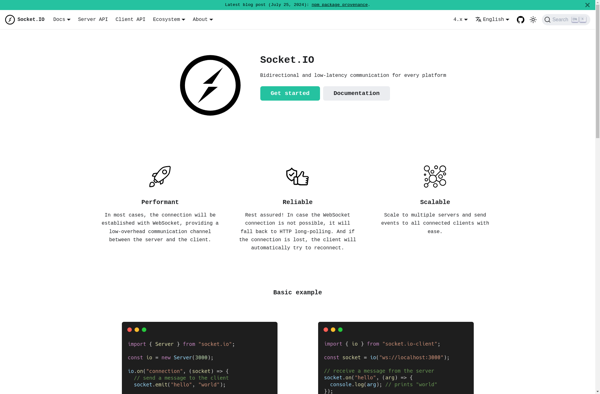
Payara Server
Payara Server is an open source application server derived from GlassFish Server Open Source Edition. It is developed by Payara Services Ltd and released under the Common Development and Distribution License (CDDL).Payara Server includes various patches, bug fixes and enhancements on top of the GlassFish codebase. Some of the key...
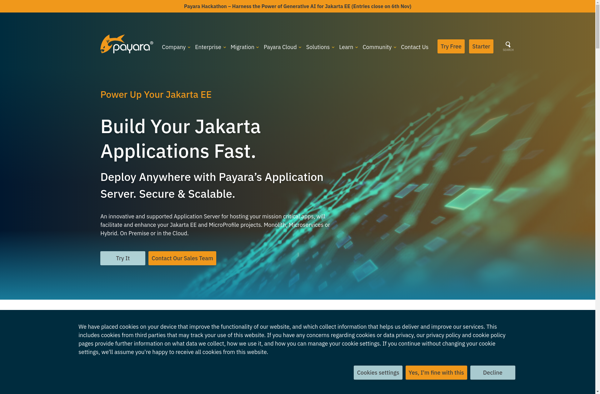
Bone.io
Bone.io is an open-source web-based wireframing and website mockup tool. It provides a simple drag-and-drop interface that allows users to quickly construct the basic wireframes and layouts for websites and web applications.Some key features of Bone.io include:Intuitive drag-and-drop editor for adding and arranging elements on pagesLibrary of common components like...
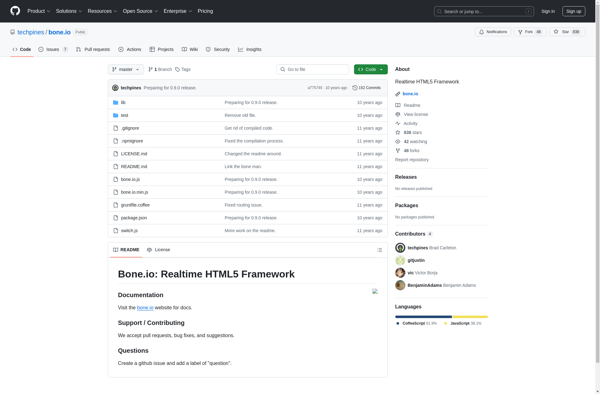
Simperium
Simperium is a real-time data synchronization service designed specifically for apps. It enables developers to build apps that sync data across multiple devices and users in real-time.Here are some key features of Simperium:Automatic data replication - Any data changes made on one device are instantly synced to all other devices.Offline...
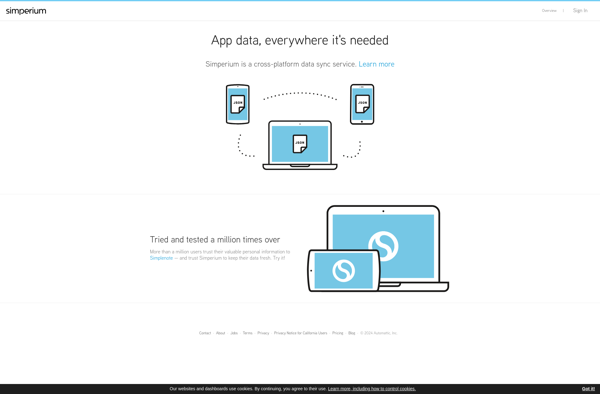
DataKernel
DataKernel is an open-source extract, transform, load (ETL) and data integration tool. It provides a user-friendly graphical interface for building data pipelines without coding. Some key features and capabilities of DataKernel include:Connectivity to a wide range of data sources like databases, APIs, files, etc.Intuitive drag-and-drop interface for transforming, cleansing, and...
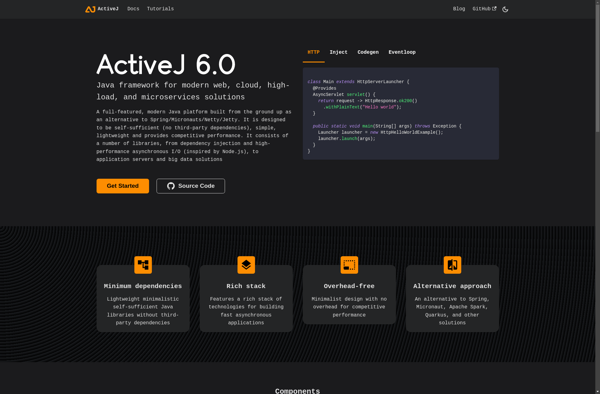
Mako Server
Mako Server is an open-source media server software that allows you to create your own personal media library. It is designed to help you store, organize, manage, and stream your media collection including movies, TV shows, music, audiobooks, photos, and more to various devices.Some key features of Mako Server include:Automatic...
